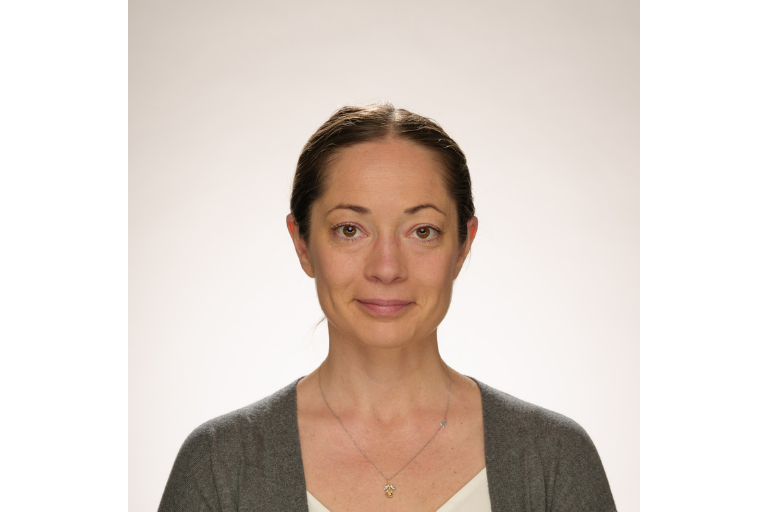
Sophia Vinci-Booher (Ph.D. 2019, Psychology & Neuroscience, Indiana University)
Sophia Vinci-Booher is an assistant professor of educational neuroscience in the Department of Psychology and Human Development at Vanderbilt University where she is the head of the Learning and NeuroDevelopment Lab (LAND LAB). Research in the lab seeks to uncover the mechanisms through which experience affects future learning by investigating how learning experiences are processed and recorded in the brain in early childhood, with implications for educational practice and therapeutic intervention. The lab uses a variety of methods, including MRI-based neuroimaging techniques, dense longitudinal training paradigms, eye-tracking, and behavioral assessments.
Vinci-Booher received a B.S. in Biomedical Engineering from Purdue University and a B.A. in French from Indiana University, formerly Indiana University Purdue University of Indianapolis (IUPUI). She received her doctorate in psychology and neuroscience from Indiana University in 2019 and completed her postdoctoral training at Indiana University and The University of Texas at Austin as a National Science Foundation Postdoctoral Fellow.
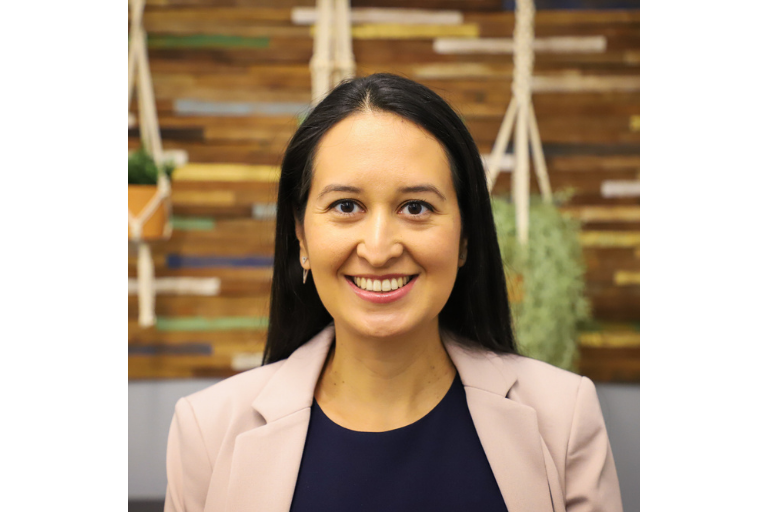
Yecenia Tostado (B.A. 2005, Psychology and Spanish, Indiana University)
Yecenia Tostado is a senior program officer at the Nina Mason Pulliam Charitable Trust. Her previous roles include serving as executive director of Project Azul, associate director for Indy Achieves at EmployIndy, senior program director at the Indiana Latino Institute, and assistant director at IUPUI Upward Bound. She holds a B.A. in Psychology and Spanish from Indiana University, a Master of Public Affairs from the O’Neill School of Public and Environmental Affairs at IU Indianapolis and is currently pursuing a doctorate in organizational leadership at Marian University.
Beyond her professional roles, Tostado is a proud member of the Board of Directors for the Indianapolis Symphony Orchestra, Leadership Indianapolis, the District Theatre, and the Indiana Humanities. Her involvement in the Founding Steering Committee for the Axis Leadership Program is particularly close to her heart, as it focuses on developing the next generation of Latino leaders.
Tostado’s leadership and contributions have been widely recognized. She was named to Indiana University’s College of Arts and Sciences’ 20 Under 40 list in 2021, received the Trailblazer Award from the Kennedy King Memorial Initiative that same year, and was honored as part of the Indianapolis Business Journal’s Forty Under 40 Class of 2020. Additionally, she was recognized in 2019 by Indy Eleven as one of their Campeones de la Comunidad (Champions of the Community).

Larissa K. Samuelson (B.S. 1993, Psychology, Indiana University; Ph.D. 2000, Psychology & Cognitive Science, Indiana University)
Larissa K. Samuelson is a professor in the School of Psychology at the University of East Anglia in the UK. Samuelson received a B.S. with Honors from Indiana University in 1993 and a joint Ph.D. in Psychology and Cognitive Science from Indiana University in 2000. From 2000-2015, she was a faculty member in the Department of Psychology at the University of Iowa.
Samuelson’s research program broadly examines processes of cognitive development and executive function with a focus on early word and category learning, incorporating connectionist and dynamic neural field models to understand how children process information and learn words. Her current research focus is on how early cognitive processes support vocabulary development with the aim of developing personalized interventions to ensure all toddlers can reach their early language potential.
Samuelson is the recipient of the PBS J.R. Kantor Graduate Award in 2000, and in 2010, she received the American Psychological Association Distinguished Scientific Award for Early Career Contributions to Psychology. The author of over 50 journal articles, Samuelson’s primary source of funding has been the National Institutes of Health. She has received grants from the National Science Foundation, the International Program Development Fund and the Faculty of Health Sciences, University of Sydney.
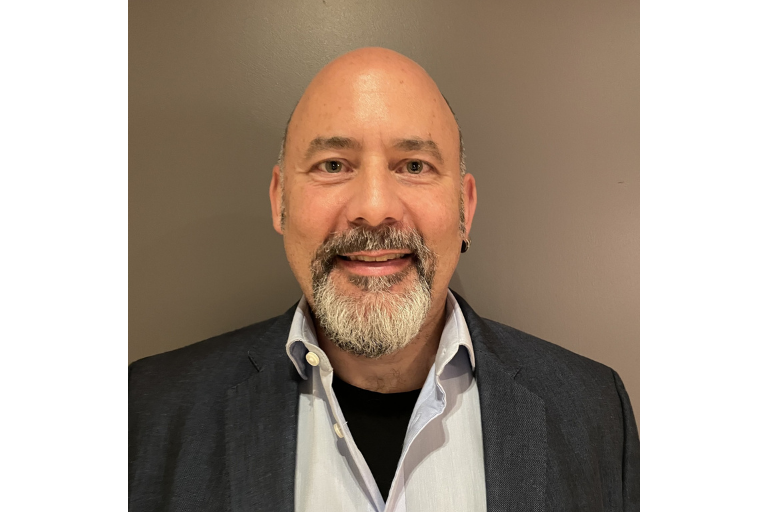
John Spencer (Ph.D. 1998, Psychology, Indiana University)
John P. Spencer is a professor of psychology at the University of East Anglia in the UK. Previously, he was a professor of psychology at the University of Iowa and served as the founding director of the Delta Center, an interdisciplinary research center dedicated to moving theory into practice through engaging with community partners. He received a Sc.B. with Honors from Brown University in 1991 and a Ph.D. in Experimental Psychology from Indiana University in 1998.
Currently, Spencer’s research examines the development of visuospatial cognition, word learning, working memory, attention, and executive function, with an emphasis on dynamical systems accounts of cognition and action. His pioneering work on early brain development using structural MRI and functional near-infrared spectroscopy is particularly noteworthy. He is also one of the co-founders of Dynamic Field Theory, a theoretical approach to cognition, action, learning and development based on neural population dynamics.
Spencer has received funding from the National Institutes of Health, the National Science Foundation, the Bill & Melinda Gates Foundation, as well as the Leverhulme Trust. He is the recipient of the PBS Irving J. Saltzman and the J.R. Kantor Graduate Awards, the 2003 Early Research Contributions Award from the Society for Research in Child Development, and the 2006 Robert L. Fantz Memorial Award from the American Psychological Foundation. He has been a fellow of the American Psychological Association since 2007.
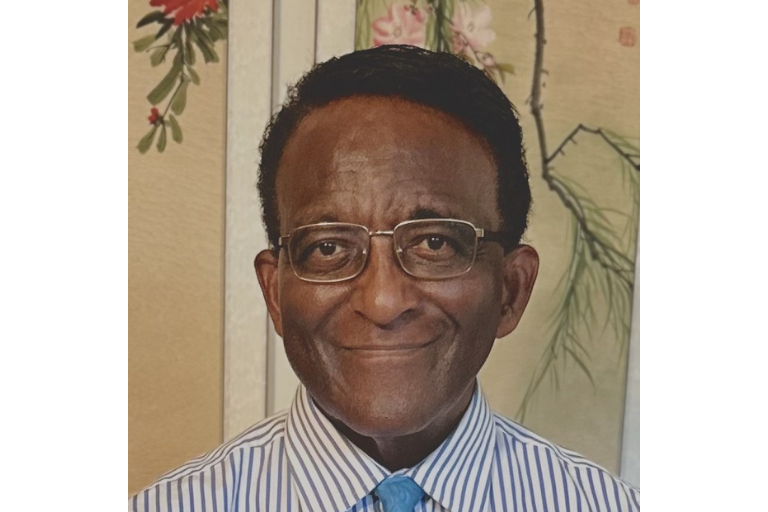
Jack Thomas (B.A. 1971, Psychology & Sociology, Indiana University; Ph.D. 1977, Psychology, Indiana University)
Jack Thomas is director of Clinical Development at Martin University, Indiana's only predominantly Black university, where he has taught since 1993. Prior to this position, he was interim chair of the psychology department and director of the Health Education Counseling Center, serving the Brightwood community in Indianapolis. He has held academic appointments in the IUB psychology department (now psychological & brain sciences) and in counseling psychology at Ball State University. Thomas also provides medical expert services to the Social Security Administration Office of Appeals and serves as medical advisor to Federal Administrative Law Judges. In that capacity, to date, he has testified in over 9,000 hearings.
Thomas received a B.A. from IU in Psychology and Sociology with minors in French and Biology. He completed his doctoral degree in clinical psychology with a minor in speech pathology at IU, conducting research in learning and memory. Following graduation, Thomas interned at Hines VA Medical Center in Hines, Illinois. Thomas has served as president of the Indiana Association of Black Psychologists, and as a member of various boards, including the Bloomington Hospital and Wishard Hospital (Midtown Mental Health) Advisory Board in Indianapolis. He was employed in the psychology department at Fort Wayne State Hospital/Developmental Center, where he provided differential diagnostic services. At New Castle State Hospital/Developmental Center, he was recruited to direct Professional Services (all licensed services) and headed Education and Training throughout the hospital. He was also an executive board member, Chair of the Human Rights Committee, and head of Education and Training for staff and supervisors.
Thomas has taught thousands of graduate students, placing over 200 clinical students at hospitals and clinical field sites in Indiana and several other states. He has also developed an influential web-based mentoring system “anyonecanachieve.com,” which provides academic and career mentoring to Black Americans and other minoritized groups with the goal of increasing their representation in top jobs in America.
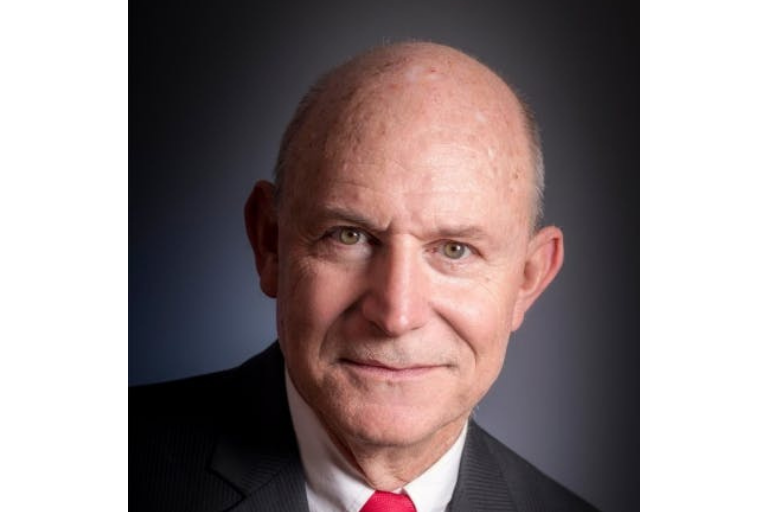
Eric C. Haseltine (Ph.D. 1978, Psychology, Indiana University)
Eric Haseltine is a neuroscientist, futurist, and author of six books on innovation, applying a brain-centered approach to help organizations in aerospace, entertainment, healthcare, consumer products and national security. For five years, he wrote a monthly column on the brain for Discover magazine and is a frequent contributor to Psychology Today’s website, where his popular blog on the brain has received over 800,000 views. Haseltine was given the Distinguished Psychologist in Management Award from the Society of Psychologists in Management and has published 41 patents and patent applications in optics, media and entertainment technology.
Haseltine received a B.A. in Economics and Psychology from the University of California, Berkeley, and a Ph.D. in Physiological Psychology from Indiana University. He completed a post-doctoral fellowship at the Vanderbilt University School of Medicine and has a certificate in Executive Management from UCLA's Anderson School of Management.
Haseltine spent 13 years at the Hughes Aircraft Company, where he became director of Engineering. In 1992, he joined Walt Disney Imagineering to help found the Virtual Reality Studio. When he left Disney in 2002, Haseltine was executive vice president of Imagineering and head of R&D for the entire Disney Corporation. In the aftermath of 9/11, he joined the National Security Agency to run its Research Directorate. Three years later, he was promoted to associate director of National Intelligence, where he oversaw all science and technology efforts within the U.S. Intelligence Community, as well as fostered development of new technologies for countering cyber threats and terrorism. For his work on counter-terrorism technologies, he received the National Intelligence Distinguished Service Medal in 2007.
Haseltine specializes in applying neuroscience to business methodologies and new technologies to improve and enhance organizational performance. He serves on numerous boards, and is an active consultant, speaker and writer. Haseltine continues to do basic research in neuroscience, focusing on the mind-body connection and the use of big data to uncover trends in mental and physical health. He currently consults both for Hollywood studios and intelligence agencies, helping organizations in both fields identify and capture what he calls “big bang” opportunities.
 The College of Arts
The College of Arts